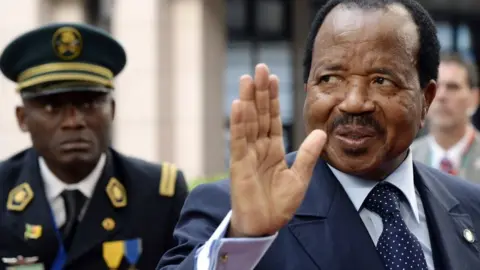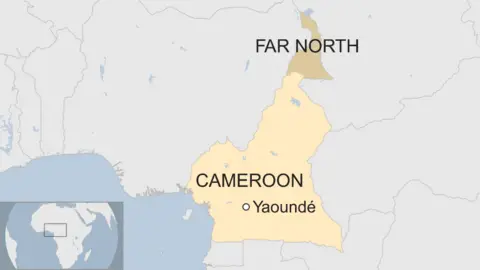Cameroon jails President Biya critic for 25 years
 AFP
AFPAmnesty International has condemned the decision of a military court in Cameroon to sentence an opposition leader to 25 years in prison.
Aboubakar Siddiki was arrested in 2014, accused of plotting to destabilise President Paul Biya's government.
He is "the latest victim of the Cameroonian authorities' strangling of opposition voices", the UK-based human rights group said.
No credible evidence was presented to the court to convict him, it added.
Mr Biya, 84, has been in power since 1982, and his critics accuse him of being authoritarian.
Mr Siddiki is the leader of Cameroon's Patriotic Salvation Movement - a small opposition party in the country's northernmost region.
He was convicted of hostility against the homeland, trying to instigate a revolution and contempt of the president.
"We are going to appeal this decision, which does not seem to us to be at all just," Reuters news agency reports Mr Siddiki's lawyer, Emmanuel Simh, as saying.
Mr Siddiki was arrested along with lawyer Abdoulaye Harissou - and they have both been in detention since August 2014.
The military tribunal sentenced Mr Harissou to three years in prison for failing to disclose information that could harm national security.
But charges were dropped against three journalists - Félix Cyriaque Ebolé Bola, Baba Wamé and Rodrigue Tongué - also arrested in connection with the same case.

There has been a strong military presence in Cameroon's Far North region in recent years as the security forces secure the area against fighters from the Islamist group Boko Haram, who have crossed the border from Nigeria to carry out attacks.
In the last year, there has also been crackdown on protests in English-speaking regions in the west of the country, where people are complaining of marginalisation in mainly French-speaking Cameroon.
